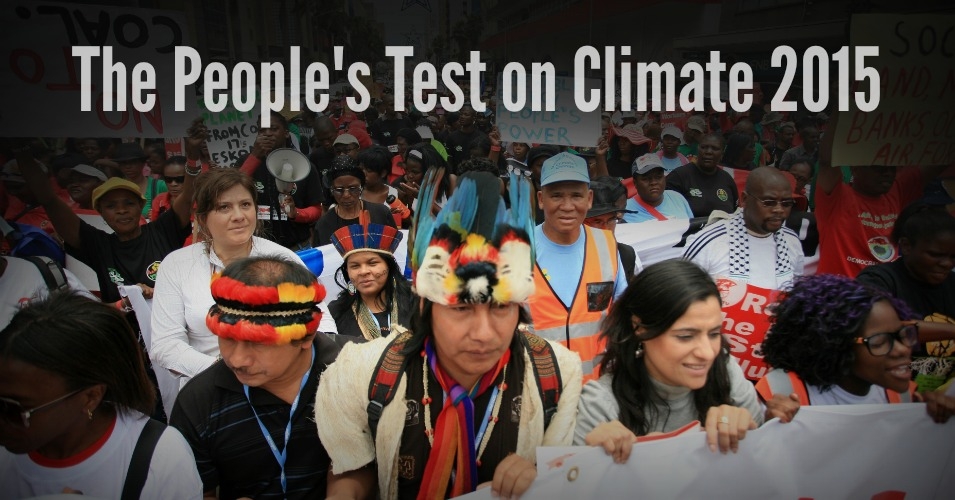London. July 13, 2015.(College of the Atlantic) Representatives of climate-impacted communities and social movements in the global South are collaborating with international faith, labour, development, and environment NGOs to issue a clear “litmus test” of success for this year’s UN climate summit.
While simply delivering any agreement in Paris may be a challenge, the real difficulty facing negotiators is to deliver an agreement that truly benefits both people and planet, rather than elites and disaster-profiteers. Remembering the dramatic 2009 Copenhagen summit, campaigners are determined not to let a similar failure at the UN undermine the growing strength and momentum of climate justice movements.
“Paris will not only be about what our governments achieve or fail to achieve, it will also be the moment that demonstrates that delivering concrete actions for the global transformation will come from people and not our politicians” said Lidy Nacpil, Coordinator of the Asian Peoples Movement on Debt and Development. “However we also must make demands of our governments, both at home and at the international level. Our People’s Demands include that governments respect and uphold the right to clean, affordable, locally controlled renewable energy; the right to food and water; and justice for vulnerable and impacted people”.
The Paris outcomes will be judged against these demands as well as the scientific and moral imperatives to act quickly and fairly. Campaigners say that, at a minimum, Paris must catalyze deep and immediate emission reductions, focus on and provide adequate support for the transformational action, all while ensuring justice for people impacted by climate change.
“Cutting emissions based on fairness and the principle of equity is the only way Paris can deliver the urgent, ambitious action that is needed”, said Dr Godwin Ojo, Executive Director of Environmental Rights Action. “Concrete steps to bring community owned renewable energy systems to the billions of people who don’t have access to any energy must be the first step. Our long term goal must be stop the world’s addiction to dirty energy and prevent the breaching of the critical 1.5 degree warming threshold”.
“It’s criminal that some governments promote dangerous measures such as carbon markets and geo-engineering whilst refusing to provide adequate levels of public finance and technology to poor and vulnerable countries. People already have real solutions to protect our food systems and to kick start the energy transformation, it’s government who lack the political will to act”.
“Although we have solutions, many of our communities are already living with the impacts of climate change” said Carolina Amaya, Executive Director of the Mesoamerican Campaign for Climate Justice. “For them we demand justice – the Paris outcome must not only support adaptation efforts, but also ensure secure workers’ livelihoods through the transition and provide reparations for the losses and damages they are already suffering”.
She added, “the solidarity between our groups and those sharing our interconnected struggles will grow, and with it our power. We are building for what happens after Paris”.

